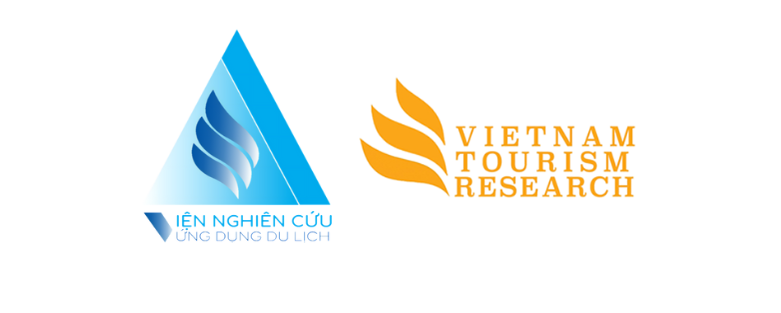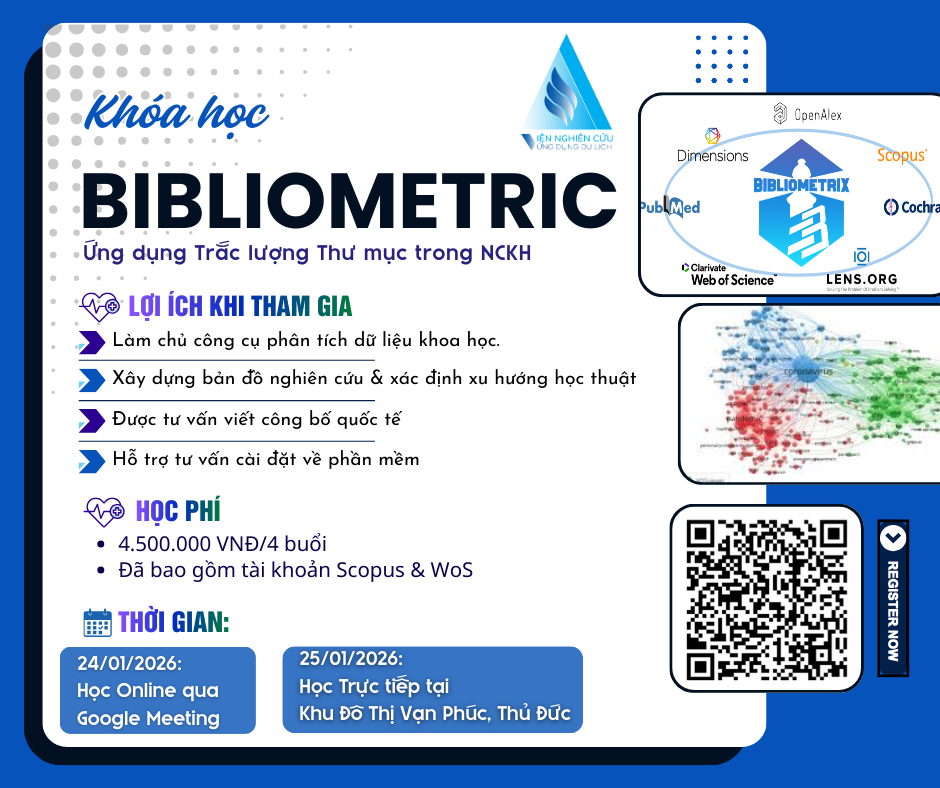This post is also available in:
Tiếng Việt (Vietnamese)
As part of the conference program, the central roundtable titled “Sustainable Transformation for Inclusive Societies: Why Responsible Tourism Matters”, moderated by Dr. Maria Cherry Lyn Rodolfo, offered a vibrant and thought-provoking dialogue platform.
The discussion aimed to clarify the essence and significance of responsible tourism in the current global context, while also proposing practical solutions to scale sustainable and inclusive models beyond pilot stages.
Key questions addressed during the session included:
-
Why does responsible tourism matter—especially at this moment in time?
-
Can tourism genuinely lead to inclusive development?
-
What does “sustainable transformation” look like in practice?
-
Who is responsible for ensuring responsible tourism? What are the barriers and enabling factors?
-
How can responsible tourism become the norm rather than remain a niche?
Academic Perspective: The Case of Macau
Professor Timothy Lee (Macau University of Science and Technology) emphasized the role of education and research in promoting sustainable tourism. He shared that in Macau, universities have implemented community-based continuing education programs to enhance public awareness of tourism benefits and to foster long-term thinking.
In addition, full-time internship programs for final-year tourism students help bridge academia and practice, while also creating opportunities for multi-stakeholder collaboration among students, community leaders, businesses, and sponsors through competitions and themed events.
Reflecting on the lessons of COVID-19, Professor Lee pointed out that Macau was severely affected due to its overreliance on the Mainland Chinese tourist market (90%) and the casino industry (which accounted for 70% of total revenue). During the pandemic, the government launched several incentive programs to support the population.
However, a key takeaway was the need to diversify source markets (towards India, Southeast Asia, and Portuguese-speaking countries) and to develop segments such as gastronomy, culture, MICE, and entertainment to reduce dependence on gambling-oriented visitors—whose numbers are declining.
Private Sector Insight: The Kerala and Village Ways Model
Ms. Manisha Pande, Managing Director of Village Ways (India), shared her experience in responsible tourism development in Kerala—a global model of excellence. The success lies in three main factors: community consultation, ensuring local voices in deciding the scope of tourism development; environmental sustainability, minimizing tourism’s impact on nature; and fair benefit distribution, ensuring participation of women, artisans, and marginalized groups, with principles such as community-owned infrastructure, transparent finances, and publicly recorded agreements.
Ms. Pande also emphasized that the pandemic underscored the importance of livelihood diversity: tourism should not be the sole income source. Small enterprises like Village Ways survived better due to low fixed costs and their ability to maintain engagement through digital platforms, such as the “Keep in Touch” campaign. Shifting focus to the domestic market was seen as a strategic move during recovery.
Philippine Government: Tourism as a Nation-Building Tool
Assistant Secretary Sharlene Batin (Philippine Department of Tourism) affirmed that in the Philippines, tourism is not only an economic driver but also part of a broader inclusive nation-building strategy. She highlighted the establishment of the Office of Digitization and Resource Generation, which connects communities to global markets via digital platforms.
Through the “Love the Philippines” campaign and partnerships with platforms like Klook, the government has promoted national branding while supporting small businesses and marginalized communities through initiatives such as GrabFood (enabling small restaurants to sell online), RCBC ATM on the Go (solving remote payment issues), community vaccination programs, and financial literacy for MSMEs.
According to her, domestic tourism was the first force to drive recovery in destinations post-pandemic.
Mr. Rahmatulla bin Affandi, Assistant Director of the Sarawak Economic Planning Unit (Malaysia), shared that Sarawak has integrated tourism into its Post COVID-19 Development Strategy (PCDS 2030) as one of the state’s core pillars. Drawing from the pandemic experience, the state has shifted from traditional models toward a resilient and inclusive approach.
The Sarawak Tourism Master Plan 2020–2035 focuses on destination branding, infrastructure investment, and authentic community engagement. Initiatives such as Business Events Sarawak (BE Sarawak) and the Legacy Impact Framework are implemented to ensure that each event hosted in Sarawak generates not only revenue, but also long-term impacts—including knowledge transfer, capacity building, and community empowerment.
Sarawak prioritizes quality tourists—those who comply with environmental standards and can generate positive social impact—through post-conference village tours, support for local products, and encouragement of small-scale local enterprises.
Synthesis and Shared Messages
During the open discussion, speakers collectively emphasized that education and transparency are key to making responsible tourism a mainstream choice rather than a niche market. Professor Lee encouraged hotels to clearly communicate their sustainability efforts. Ms. Pande warned against “greenwashing” and advocated for recognition through reputable awards. Assistant Secretary Batin reaffirmed that sustainability is a mandatory standard for Philippine hotels. Mr. Rahmatulla highlighted the need to rethink tourism—not just as photo-taking, but as cultural contribution and mutual learning.
Dr. Rodulfo concluded with a message of transformation: from Ideas to Action & Adaptation, from Pilots to Sustained Commitment & Connections. She emphasized five core “C” elements: Community, Consultation, Collaboration, Connections, and Congruence.
The roundtable demonstrated how academia, businesses, and governments are working together to make responsible tourism not merely an ideal, but a new standard for development in the post-COVID era.
Vietnam’s Contribution: Multidimensional Approaches to Sustainable Tourism
At the international conference on sustainable tourism, Assoc. Prof. Dr. Quang Dai Tuyen, Lecturer at the Faculty of Tourism, Nguyen Tat Thanh University, played a key role in moderating the panel “Cultural Heritage as a Catalyst for Peace” at the Impact Stories 2 event. He emphasized cultural heritage as a tool to promote peace and mutual understanding among communities, affirming that responsible tourism is key to sustainable social development.
Dr. Bui Thi Ngoc Phuong, Lecturer at Hong Bang International University, also made notable contributions at the panel “Responsible Tourism for Sustainable Transformation and Inclusive Societies” during Impact Stories 1. As chair, she shared models of women-friendly tourism, highlighting the importance of inclusive tourism policies in building sustainable and equitable tourism communities.
Nguyen Duc Hieu, M.A. and Ph.D. candidate, Lecturer at the Faculty of Tourism, Van Lang University, chaired a session on “Innovation and Technology in Responsible Tourism.” In this role, he facilitated knowledge exchange among international experts on applying innovation and digital tools in tourism, thus supporting the growth of responsible tourism models.
All three—Assoc. Prof. Dr. Quang Dai Tuyen, Dr. Bui Thi Ngoc Phuong, and Mr. Nguyen Duc Hieu—played pivotal roles at the conference, bringing valuable academic insights that helped elevate Vietnam’s international profile in sustainable tourism.
This year’s conference also featured extensive contributions from leading scholars across Asia and the world, showcasing a diversity of responsible tourism approaches. Within that global tapestry, Vietnam offered its own voice, contributing through knowledge systems, field-based studies, product innovation, and cultural conservation—reflecting the breadth of research and practice in sustainable tourism, from systemic academic analysis to grassroots experiences and youth perspectives.
The study conducted by Phan Thi Anh Hong and colleagues presents a comprehensive bibliometric analysis of Community-Based Tourism (CBT) in ethnic minority communities over the period 2005–2024. Based on 778 publications retrieved from Scopus and Web of Science, the research highlights that while CBT has gained increasing scholarly attention, there remains a lack of systematic synthesis regarding its knowledge structure.
The research identified five key themes: sustainability and resilience, empowerment and participation, local context, integrated conservation, and social capital—offering a scientific foundation for evidence-based future research directions.
From a fieldwork perspective, Mr. Dang Thanh Quoc Thuan, Ph.D. student at National Kaohsiung University of Science and Technology (Taiwan), presented research on a traditional Cham pottery village in Vietnam. Based on data collected in both Vietnamese and Cham languages, he identified major barriers to community-based tourism: lack of capital, competition with industrial pottery, policy misalignment, infrastructure constraints, and loss of traditional skills among younger generations.
He emphasized the role of community-based tourism (CBT) as a mechanism for heritage preservation and livelihood creation, proposing an equitable governance model that focuses on modest infrastructure investment, cultural capacity-building, and distinctive tourism products.
In emerging tourism sectors, Mr. Pham Ngoc Hieu, Deputy Director of the Research Institute for Applied Tourism (RIAT), shared a study on glamping and adventure tourism in Mang Den, Kon Tum. Despite its appeal to youth, the destination saw a revisit rate of less than 6%, significantly below the national average.
The study found that emotional experience and interaction with guides and nature were key determinants—more so than infrastructure or weather. The research team recommended focusing on experience depth and human resource quality rather than over-investment in amenities—an approach aligned with sustainable development in new ecotourism destinations.
Representing the youth voice, Nguyen Ha Phuong, a student at Nguyen Chi Thanh High School for the Gifted (Dak Nong), presented the “Memory Project“, which aims to preserve and revitalize traditional Vietnamese folk games—a fading heritage. She argued that games are not just childhood memories, but cultural and peace-building bridges, connecting generations and offering authentic experiences for visitors.
With the message “heritage is not static—it evolves,” Ha Phuong emphasized that cultural values can spread not only through formal ceremonies but also through simple joys sincerely shared.
While challenges remain for Vietnam in advancing sustainable tourism, this participation affirms the country’s growing role in research and practice of responsible tourism. The Vietnamese delegation hopes that these contributions—however modest—will lead to further opportunities for learning, collaboration, and development, enriching the global body of knowledge and practice in tourism.
















